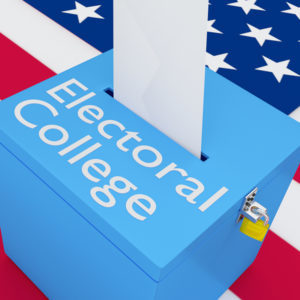Democrats and progressives are beginning to relax and even feel like celebrating, at least a little bit.
The U.S. electoral system teetered once again on the edge of the electoral abyss, but it didn’t completely collapse.
Although the Biden-Harris team now have more than a five million lead in the popular vote nationwide, and the presidential race was never close from a national viewpoint, Team Blue was only able to squeak out the 270 plus votes needed in the Electoral College by winning a razor thin majority in Pennsylvania, Arizona, Nevada and possibly a couple of other “battleground” states.
But if Pennsylvania, Michigan and Wisconsin had gone to Trump by small margins as they had in the ill-fated 2016 election that propelled him into the White House, the country would be facing the nightmare scenario of another four years of presidential-induced chaos, lies and further polarization.
If this very real possibility had been the fate we were now facing, the question of whether our already eroded pillars of our democracy would ever recover would have been a serious one. This would have been the third time in 20 years that we had elected a president that did not win the national majority vote.
The elections of 2000, when George W. Bush lost the popular vote but won the White House, and 2016, when Trump squeaked into office by losing the popular vote but winning the Electoral College, were very real and painful memories for those tens of millions of us who saw that our votes did not really count in the presidential elections, just because we happened to not live in one of a few battleground states.
Isn’t it time we took a close look at this antiquated and broken system of choosing our presidents? Or will we just revert to our usual post-electoral stupor? Let’s hope that as the country recovers from the last four years of disastrous policies, that we also scrap the Electoral College before it produces another Trump-like nightmare.
Indeed, the Electoral College is part and parcel of the institutional racism that the Biden-Harris team has vowed to tackle, though they may not know it yet.
At the Constitutional Convention in 1787, some of the Founders gave lip-service to the concept of “one man, one vote,” but these faint calls for a real democracy were generally ignored. Instead, the Founders crafted a Constitution that contained several tripwires to ensure that a “mobocracy” — as a pure democracy was derogatorily referred to — would never see the light of day.
Allocating two Senate seats to each state, no matter what its population size, was the most obvious way to ensure that smaller and more rural states (particularly slave-holding Southern states) held disproportionate political power.
The Electoral College was a stealthier — but just as effective way — to ensure that those same smaller and less populous states would continue to play an outsized role in the selection of the president.
The Electoral College and the Three-Fifths Compromise, where three out of every five slaves were counted as “people,” ensured that slaves would be disenfranchised while still being counted for purposes of maintaining political clout within the U.S. federation.
Allowing the Southern states to partially count slaves gave them a third more seats in Congress and a third more electoral votes than if slaves had been ignored. But the states didn’t have to actually let black people vote.
The Electoral College has been similarly problematic for women voters.
In a direct national election system, any state that gave women the vote would automatically have doubled its national clout. But under the Electoral College, a state had no such incentive to increase the franchise.
Just as slaves were partially counted for purposes of empowering the states in the House of Representatives, so too were women counted as “persons” for the same purpose, without actually having the right to vote.
With a preordained number of electoral votes allocated to each state, it made no difference to each state’s ability to influence presidential elections whether women or blacks voted. By contrast, a well-designed direct election system would further motivate the states and political parties to empower all eligible voters to cast their votes.
As we strive in the coming years to build a more equitable and perfect union that best serves the interests of the vast majority of Americans, not an elite few, the Electoral College must be removed as one of the last vestiges of an antiquated, anti-democratic, and racist system that does a grave disservice to our contemporary society.
Its destruction in favor of a true national electoral process is far more important than toppling a few Confederate statues and removing a few Confederate flags.
According to a Pew Research poll done in March 2018, 75 percent of Democrats support moving to a popular vote system, with overall support for a popular vote at 55 percent.
A significant minority of Americans in a post-Trumpian country will vociferously oppose any move closer to the “one person, one vote” ideal because they fear true democracy and have benefitted from decades, if not centuries, of a system that protects white, male privilege.
If you really want your vote to count, and you want it counted equally with those of your fellow citizens, one of the primary ways to build a more perfect union is to scrap the Electoral College.

